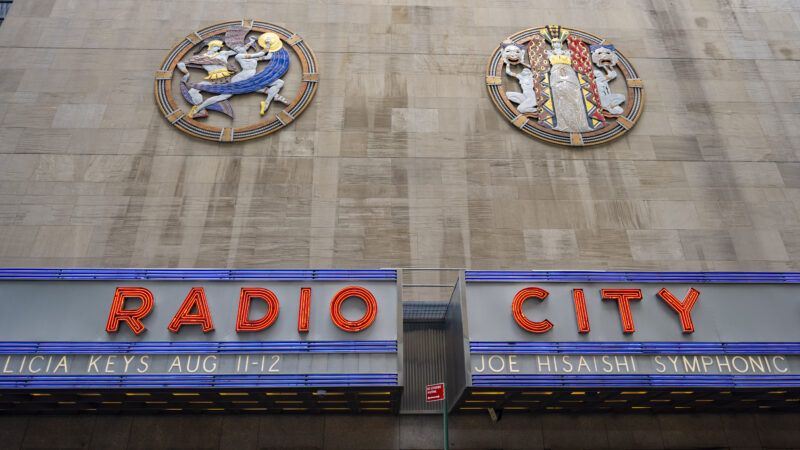Why a Facial Recognition Device Barred This Woman From a Rockettes Show
Kelly Conlon's bizarre experience gives a glimpse into a future with omnipresent facial recognition systems.

Last month, Kelly Conlon arrived with her daughter's Girl Scout troop to watch a Rockettes performance at Radio City Music Hall, but she abruptly was denied entry. Why? Conlon works for a law firm the venue's parent company had blacklisted. While the policy is unusual, Conlon was found out for an even more surprising reason: the venue's use of facial recognition technology.
Conlon's experience, while bizarre, gives a glimpse into a future with abundant facial recognition devices—one where our personal information can be accessed and used against us at a moment's notice.
Just how Conlon ended up being turned away by security guards starts with a corporate grudge. According to NBC New York, Conlon is an attorney working for the New Jersey-based law firm Davis, Saperstein, and Solomon, which is currently involved in personal injury litigation against a restaurant owned by MSG Entertainment, the parent company which also owns Radio City Music Hall. A twist of this litigation is that the company decided that all attorneys working for law firms engaged in litigation against them are banned "from attending events at our venues until that litigation has been resolved."
As Conlon describes, she was identified almost immediately by a facial recognition device. "It was pretty simultaneous, I think, to me, going through the metal detector, that I heard over an intercom or loudspeaker," Conlon told NBC New York. "I heard them say woman with long dark hair and a grey scarf." After being stopped by security, they demanded her name and ID and told her that facial recognition had picked her up.
"They knew my name before I told them. They knew the firm I was associated with before I told them. And they told me I was not allowed to be there," Conlon told NBC New York.
Despite insisting that she doesn't work on cases against MSG—or even practice in New York, Conlon was still denied entry, and forced to wait outside during the show. "I was just a mom taking my daughter to see a Christmas show," Conlon told NBC New York. "It was embarrassing, it was mortifying."
Conlon's law firm is challenging the policy—claiming that it violates MSG's liquor license, which "requires them to admit members of the public, unless there are people who would be disruptive who constitute a security threat," according to one member of Conlon's firm.
However, the most troubling part of this story isn't why Conlon was turned away, but how.
Facial recognition devices are becoming increasingly common in public spaces and private businesses. However, these devices, while often touted as a reasonable security measure, have dangerous implications for privacy rights. After all, Conlon could only be stopped because MSG Entertainment had access to a database with pictures of her, and personal information tying her to her job.
Adding to these privacy concerns, there is good reason to believe that facial recognition data collected by private businesses won't stay in corporate hands for long. "Corporate face surveillance is dangerous because government agencies could one day demand access to all of the data amassed by companies in order to institute essentially a turnkey authoritarian surveillance regime," wrote Reason's Ron Bailey.
Facial recognition data in government hands, as Bailey wrote, could lead to a staggering invasion of individuals' most basic privacy rights, leading to "pervasive real-time video tracking of citizens as they visit their doctors, attend religious services, engage in private sexual activity, and participate in political meetings, gatherings, and protests."
While Conlon's unpleasant rejection from Radio City Music Hall seems strange, it's likely that the facial recognition systems that enabled it—and the dangers they present to individual privacy—aren't going away anytime soon.


Show Comments (79)